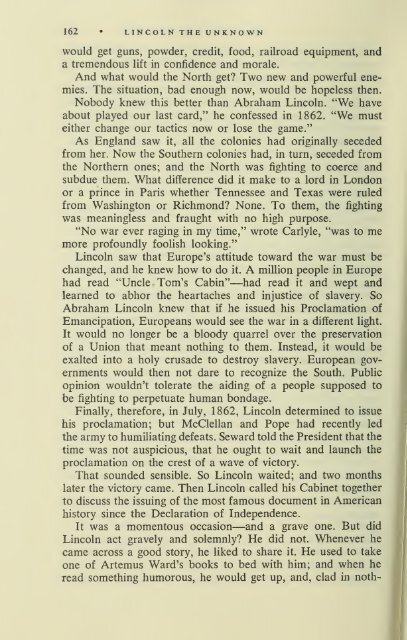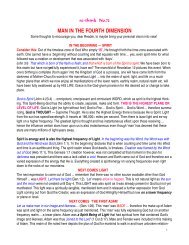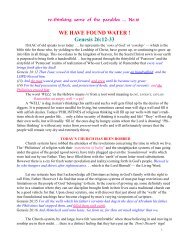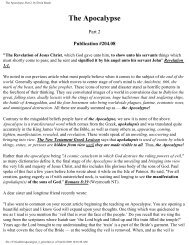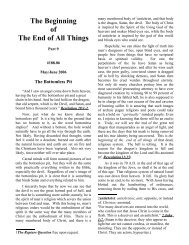Create successful ePaper yourself
Turn your PDF publications into a flip-book with our unique Google optimized e-Paper software.
162•LINCOLN THE UNKNOWNwould get guns, powder, credit, food, railroad equipment, anda tremendous lift in confidence and morale.And what would <strong>the</strong> North get? Two new and powerful enemies.The situation, bad enough now, would be hopeless <strong>the</strong>n.Nobody knew this better than Abraham <strong>Lincoln</strong>. "We haveabout played our last card," he confessed in 1862. "We mustei<strong>the</strong>r change our tactics now or lose <strong>the</strong> game."As England saw it, all <strong>the</strong> colonies had originally secededfrom her. Now <strong>the</strong> Sou<strong>the</strong>rn colonies had, in turn, seceded from<strong>the</strong> Nor<strong>the</strong>rn ones; and <strong>the</strong> North was fighting to coerce andsubdue <strong>the</strong>m. What difference did it make to a lord in Londonor a prince in Paris whe<strong>the</strong>r Tennessee and Texas were ruledfrom Washington or Richmond? None. To <strong>the</strong>m, <strong>the</strong> fightingwas meaningless and fraught with no high purpose."No war ever raging in my time," wrote Carlyle, "was to memore profoundly foolish looking."<strong>Lincoln</strong> saw that Europe's attitude toward <strong>the</strong> war must bechanged, and he knew how to do it. A million people in Europehad read "Uncle Tom's Cabin"—had read it and wept andlearned to abhor <strong>the</strong> heartaches and injustice of slavery. SoAbraham <strong>Lincoln</strong> knew that if he issued his Proclamation ofEmancipation, Europeans would see <strong>the</strong> war in a different light.It would no longer be a bloody quarrel over <strong>the</strong> preservationof a Union that meant nothing to <strong>the</strong>m. Instead, it would beexalted into a holy crusade to destroy slavery. European governmentswould <strong>the</strong>n not dare to recognize <strong>the</strong> South. Publicopinion wouldn't tolerate <strong>the</strong> aiding of a people supposed tobe fighting to perpetuate human bondage.Finally, <strong>the</strong>refore, in July,1862, <strong>Lincoln</strong> determined to issuehis proclamation; but McClellan and Pope had recently led<strong>the</strong> army to humiliating defeats. Seward told <strong>the</strong> President that <strong>the</strong>time was not auspicious, that he ought to wait and launch <strong>the</strong>proclamation on <strong>the</strong> crest of a wave of victory.That sounded sensible. So <strong>Lincoln</strong> waited; and two monthslater <strong>the</strong> victory came. Then <strong>Lincoln</strong> called his Cabinet toge<strong>the</strong>rto discuss <strong>the</strong> issuing of <strong>the</strong> most famous document in Americanhistory since <strong>the</strong> Declaration of Independence.It was a momentous occasion—and a grave one. But did<strong>Lincoln</strong> act gravely and solemnly? He did not. Whenever hecame across a good story, he liked to share it. He used to takeone of Artemus Ward's books to bed with him; and when heread something humorous, he would get up, and, clad in noth-


